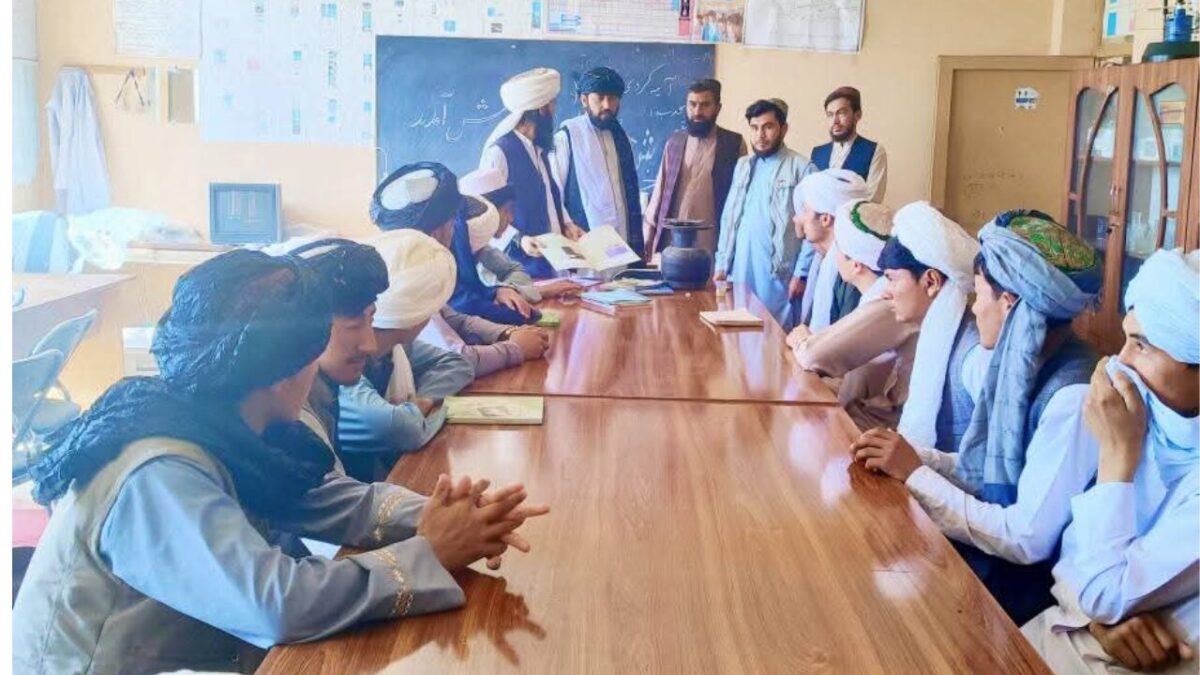The new Taliban-imposed dress code in schools that mandates traditional clothing, including turbans, long shirts, and trousers has discouraged many from continuing their education, students said.
The policy requires all male pupils and teachers to wear white shalwar kameez, turbans, or caps. Some students who attempted to resist the mandate said they were warned by school administrators and eventually barred from attending classes.
“Because of the Taliban’s dress rule, I dropped out of school,” said Mohammad, a high school senior using a pseudonym for safety reasons. “They told us to wear white shalwar kameez and a turban. I refused and was warned twice. Then I wasn’t allowed back. Several of my classmates left for the same reason.”
The regulation, officially issued in April 2023 by the Taliban’s Ministry of Education, outlines not only the required garments but also their color and measurements. The directive, signed by Taliban acting education minister Habibullah Agha, notes that the order was approved by Taliban leader Hibatullah Akhundzada and must be implemented across all provinces.
Some students who have continued attending school under the new dress code also expressed unease. “These rules are causing people to quit school,” said Naweed, a student in eastern Afghanistan. “Other countries are progressing, and we are stuck debating uniforms.”
Human rights advocates say the dress code, alongside other Taliban education policies, is contributing to a broader erosion of access to education in Afghanistan. They warn that the growing number of dropouts could lead to long-term social consequences.
“When we talk about education, we should be talking about global standards — not about clothing restrictions imposed by religious edicts,” said Mina Rafiq, a human rights activist. “This is an infringement on personal freedom — for both men and women — and it’s driving students away from learning.”
Rafiq added that the education system under the Taliban has already undergone significant changes, including curriculum shifts toward religious schooling modeled after seminaries in Pakistan. “Now, even the uniforms must change — all to align with a specific ideology,” she said.
While the Taliban has defended the policy as a measure to promote “discipline and Islamic identity,” critics argue that enforcing such rules through coercion undermines educational goals.
Several students who spoke with Amu called on the Taliban to reconsider. “We ask them to think about the conditions families and students are in,” said Naweed, a student. “They should revise their decision so we can focus on learning, not on what we wear.”





